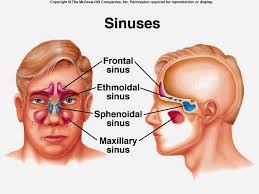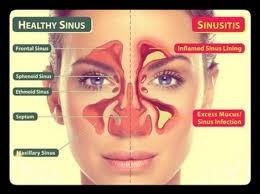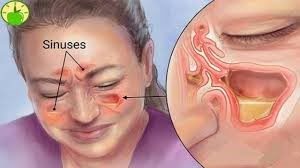A small introduction about sinus
Sinus surgery is a procedure that aims to open the pathways of the sinuses and clear blockages. This is an option for people with ongoing and recurrent sinus infections, for people with abnormal sinus structure, or abnormal growths in the sinus.
A doctor will often attempt other treatments and procedures before resorting to surgery. If these don’t work, surgery may be carried out.
Sinus surgery can be done with little discomfort. It is a brief procedure that has few complications.
Sinus is basically an inflammation in the nasal passage. Coughing, sneezing, feeling tired and achy are the common symptoms of sinus. This indicates the sinus condition. Suffering from sinus may have different types of headaches as well, like tension headache, cough headache, eye strain headache, sore throat headache, blurred vision headache. One may also suffer from headache nausea.
Symptoms of Sinus
The symptoms of sinus infection depend on it is chronic or acute. Signals vary from person to person. There are basically two types Acute Sinusitis and Chronic Sinusitis. If it lasts for a few days is known as acute sinusitis, whereas if it last for more than three months it is called Chronic Sinusitis. Acute sinusitis is more painful, whereas chronic sinusitis is less painful. Most common symptoms
- Running nose
- Sneezing or coughing
- Headache in the temple or surrounding areas
- Frequent clearing of throat
- Discharge of mucous from the nose and nasal congestion.
- Worse headache after waking up in the morning or bending forward or riding an elevator.
- Fever
- Itching in nose and eyes
- Bad breath
- Eye and face pain
- Feeling of tiredness or weakness
- Reducing sense of taste and smell
Other symptoms are ear-ache, tenderness and swelling behind the ear.
Hoarse voice and sore throat caused due to post-nasal drip. Eye region swells due to spread of infection from sinuses to eyes. Vomiting with severe headache happens due to spread of infection to the brain. Pain in teeth, upper jaw and cheeks are also experienced and often mistaken as tooth ache.
Reasons for sinus surgery
Sinusitis is an infection in the nasal passages which can cause pressure, headaches, a stuffy nose, and congestion.
The goal of the surgery is to remove whatever is blocking the drainage pathways of the sinuses. This may include removing:
- thin pieces of bone
- mucous membranes
- nasal polyps
- swollen or damaged tissue
- tumours or growths blocking the nasal or sinus passage
A person may require sinus surgery to treat a variety of issues. Common reasons include sinusitis and nasal polyps.
Nasal polyps
Nasal polyps are swellings of the nasal lining inside the nasal passages and sinuses. They can vary in size but are usually teardrop-shaped.
Larger polyps or clusters may lead to breathing issues and can affect someone’s sense of smell. They can also block a person’s sinuses leading to infections.
Some people may experience no symptoms from nasal polyps. However, common ones include:
- a blocked nose, leading to difficulty breathing
- a runny nose
- recurrent sinus infections
- post-nasal drip
- a reduced sense of smell or taste
- facial pain
- headaches
- snoring
- sleep apnea
Types of Sinusitis
Acute Sinusitis
Acute sinusitis refers to sinusitis symptoms lasting less than four weeks. Most cases begin as a common cold. Symptoms often go away within a week to 10 days; but in some people, a bacterial infection develops.
Chronic Sinusitis
Chronic sinusitis, also referred to as chronic rhino sinusitis, is often diagnosed when symptoms have gone on for more than 12 weeks, despite medical treatment.
People with allergic rhinitis or asthma are more likely to suffer from chronic sinusitis. This is because the airways are more likely to become inflamed when allergic rhinitis or asthma is present. Sinusitis may also be caused by an infection, a fungus, deviated nasal septum, and nasal polyps or in rare cases an immune system deficiency.
If I have a sinus infection (sinusitis)
The main way to diagnose a sinus infection is to be evaluated by a healthcare provider. We offer Urgent Care services throughout our business hours. We also encourage new patients to Walk-In for their Urgent Care needs.
You will usually know that you have a sinus infection if you exhibit most of the symptoms listed above, or if you have had symptoms that have lasted for longer than 10 days. A runny nose and nasal congestion are the main symptoms of a viral upper respiratory infection, so it is important to not take antibiotics when the cause of your symptoms is not a bacterial infection. After all, antibiotics do not treat viral infections.
Causes of Sinus Infection
Sinus infections or sinusitis may be caused by anything that interferes with airflow into the sinuses and the drainage of mucus out of the sinuses. The sinus openings (ostea) may be blocked by swelling of the tissue lining and adjacent nasal passage tissue, for example with
- common colds,
- allergies, and
- Tissue irritants such as OTC nasal sprays, cocaine, and cigarette smoke.
Common Sinus Problems
Blockages
Each sinus has a narrow spot, called the transition space (ostium), which is an opening that’s responsible for drainage. If a bottleneck or blockage happens in the transition of any of your sinuses, mucus backs up.
An extra sinus
About 10% of people have one. It narrows that transition space.
Deviated nasal septum
Your nasal septum is the thin wall of bone and cartilage inside your nasal cavity that separates your two nasal passages. Ideally, it’s in the center of your nose, equally separating the two sides. But in many people, whether from genetics or an injury, it’s off to one side, or “deviated.” That makes one nasal passage smaller than another. A deviated septum is one reason some people have sinus issues. It can also cause snoring.
Narrow sinuses
Some people just have variations in their anatomy that create a longer, narrower path for the transition spaces to drain.
Sinus sensitivity and allergies
You may be sensitive to things in your environment and to certain foods you eat. That can cause a reaction that leads to swelling in the nose.
Your doctor can prescribe medications to control your symptoms. If you have sinus problems and allergies, you should avoid irritants such as tobacco smoke and strong chemical odours.
How to Protect Your Sinuses
Use these tips to reduce inflammation and prevent problems:
- Apply a warm, moist washcloth to your face several times a day to help open the transition spaces.
- Drink plenty of fluids to thin the mucus.
- Inhale steam two to four times per day. Sit in the bathroom with the hot shower running.
- Use a nasal saline spray several times per day.
- Wash your nose with a salt water solution from a neti pot.
- Get a humidifier to moisten the air you breathe and help open sinuses.
If your sinus problems are related to allergies :
:
- Avoid your allergy triggers.
- Use antihistamines and decongestants if needed.
- Talk to your doctor to see if you need prescription medicines, allergy shots, or other forms of “immunotherapy” (such as under-the-tongue tablets).
Lastly, if your sinus problems keep coming back, you can ask your doctor about the pros and cons of surgery to clean and drain the sinuses.
Possible risks
The complications that can occur during sinus surgery are mostly rare and include the following:
Bleeding
Bleeding after surgery tends to happen within the first 24 hours. However, it can sometimes occur later, after days or even weeks. If a clot develops within the bony partition between the nasal passages, commonly called the septum, then it must be removed.
Intracranial complications
The septum attaches to the roof of the nose. This thin layer of bone may be damaged during sinus surgery. However, this is a very rare complication.
Brain fluid can leak into the nose and, in severe cases, can lead to an infection in the lining of the brain such as meningitis. While this issue is extremely rare, it is often identified and repaired while the initial surgery is taking place.
Although eye damage is rare, surgery may cause bleeding or watery eyes.
Damage to the eye or surrounding tissue
As the sinuses are so close to the eye, bleeding can sometimes occur into the eye. This happens when the thin layer of bone that separates the sinus from the eye is damaged. This is rare and, again, is usually spotted and treated while the surgery is taking place.
In extremely rare instances, visual loss and blindness have been reported. There have also been rare reports of damage to the muscles that move the eye, which can lead to temporary or permanent double vision.
Other instances may lead to a change in how the tear ducts work, causing excessive tearing.
Changes to a person’s voice
Sinuses affect the resonance of a person’s voice. A complication of sinus surgery can sometimes lead to a change in someone’s voice.
Loss of smell or taste
After sinus surgery, a person’s sense of smell usually improves due to the airflow being restored. However, it can worsen in rare cases depending on the extent of swelling or infection. This is often temporary but can be prolonged.
Infection
Dealing with sinus infections is the main reason why sinus surgery is done. A person with sinusitis can develop other infections in this area as a result of surgery.
However, this complication is also possible if a person doesn’t undergo surgery for a long-term sinus infection.
Nasal issues
Sinus surgery usually improves airflow. However, in rare cases, surgery can worsen this. Small amounts of scar tissue may also build up in the nasal passage that will require another procedure to remove.
Treatments to try before surgery
Before resorting to surgery, a doctor will attempt a variety of other treatments. There is a range of medications that may be issued, as well as other procedures that may improve symptoms.
These other treatments include:
- Antibiotics
- nasal saline rinses or sprays
- nasal decongestant sprays
- nasal steroid sprays
- oral steroids
- allergy medications
- antihistamines
Recovery
After sinus surgery has taken place, nasal packing may be used. Nasal packing is the insertion of sterile gauze-like material into the nasal passage to control bleeding.
Use of packing depends on the type of surgery performed. The packing can be absorbable and will dissolve over time. If the packing is non-absorbable, a doctor will have to remove it.
Recovery periods vary depending on the surgery performed and other factors such as age and general health. However, many people experience very little discomfort after sinus surgery. Most individuals can go home the same day as surgery.
Depending on the extent of the surgery, a person may be given prescription pain medication during recovery. After the operation, it’s common to experience:
- mild discomfort
- fatigue
- nasal congestion
- small amounts of bleeding
People should closely follow their doctor’s instructions for aftercare and take all medications as prescribed. They may have to make changes in their daily routine for the first 2 weeks after surgery.
Common medications prescribed after your procedure often include saline rinses, steroids, and antibiotics.
